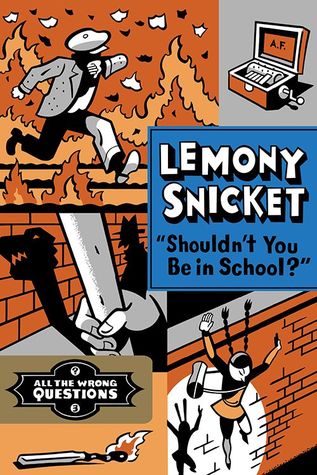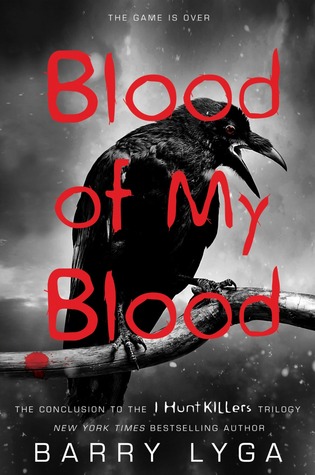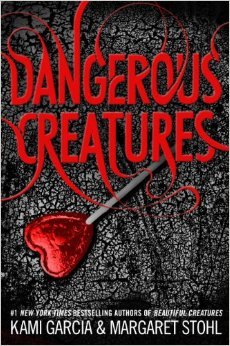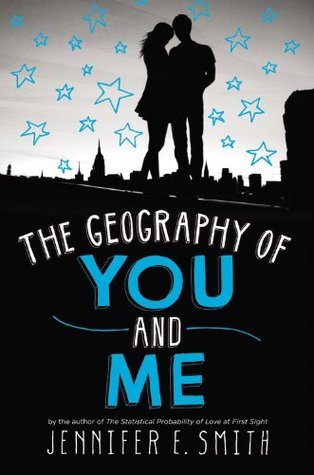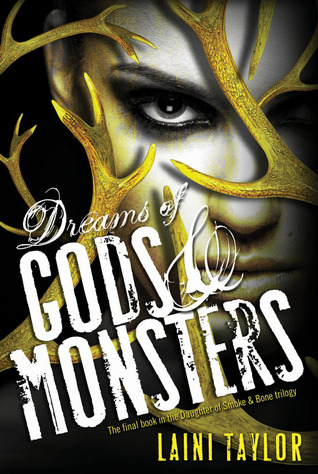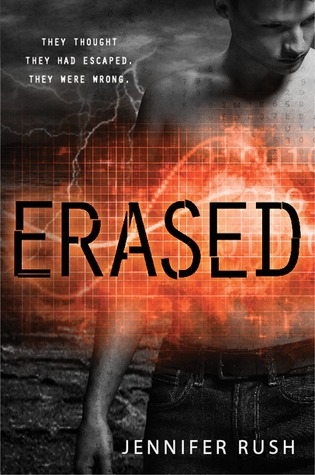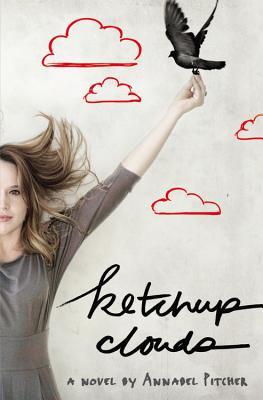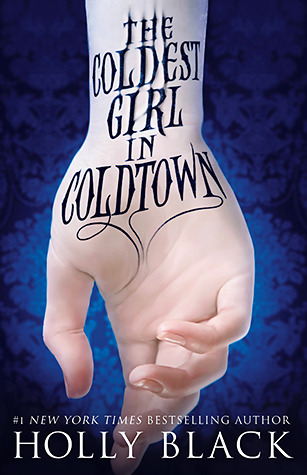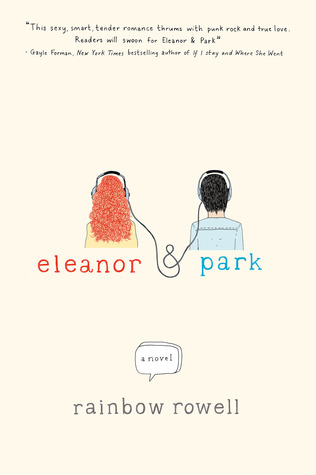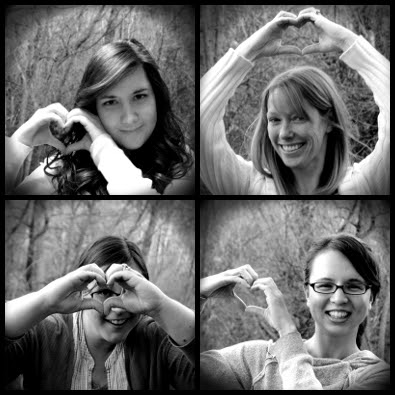Friday, May 30, 2014

As some of you know, I attended the Pike's Peak Writers Conference last month and had a wonderful experience. I returned from the weekend bursting with energy and ready to employ the techniques I'd learned there in my own writing. I shared some of these in my last post, but there were just too many tasty tidbits that I wasn't able to include. So here is a second helping of conference tips... I hope you enjoy them!
- Make every word count. We've all heard this, right? Tightening things up is often easier said than done, though. But whenever I go back and read a page from a favorite book, it's obvious that the author did just that. He/she chose each word carefully and used only what was needed.
- Dialogue is a dangerous opening, but can be great if done well. So if you're using dialogue as the first line of your book, the take-home here was to make it something special. Something that piques your reader's interest. Something that startles or shocks. Something that drips with voice.
- When writing character-based novels, you need to know your characters extremely well even before you sit down to write. One book series cited in this discussion was Harry Potter. I mean, you could cite these books for brilliance in so many areas, but just think of how every single character was so well developed. (Harry, Ron and Hermione, of course, but also Luna, Snape, Mrs. Weasley, Malfoy, Dobby, etc.) A lot of authors will write character sketches or "interview" their characters before they start writing. Sometimes, before I drift off to sleep I make up scenes in my head (that may never actually occur in my book) and just "watch" how my characters react. It's enlightening... and fun!
- Scenes should have power shifts. Oooh, this was one of my favorites. The idea here is that whichever character starts with the power in a scene needs to lose that power--even if they get it back in the end. If you have multiple power players starting a scene, make them all lose their power. Isn't it fun to give and take power so easily? Bwahaha....
- Have your characters use all six senses. In one workshop, I learned that authors tend to rely most heavily on sight, hearing and, to a lesser degree, touch. Keep the other senses in mind, too, and try to sneak them into your writing: smell, taste, and intuition.
- Think cinematically. If your book was a movie, how would you set up the scene? What props would you use? A vase, a bedspread, salt and pepper shakers... In books, the details of these subconscious scene markers should not be glaring, but rather should occur naturally--just like a camera panning across a room in a movie.

Tagged:
characters,
Posts by Ingrid,
writing
|
1 comments
Friday, May 23, 2014

In case you haven't heard, there's a power struggle in publishing right now:
Regardless of whether you love Amazon or hate it, it's important, I think, to keep up with news like this. http://t.co/7DngH7r1QW
— Martha Mihalick (@MarthaMihalick) May 23, 2014
As both writers and readers, we are not happy with what's going on, but this post is not about debating either side.
What we want to do is simply share some recent and forthcoming YA titles that are being impacted by this debacle. Hachette publishes teen books under their Little, Brown (Books for Young Readers) and Poppy imprints. If any of these interest you, please consider stopping by your local book-seller to purchase a copy, or pre-ordering online from a non-Amazon retailer (so that you can actually, you know, get the book).
You can learn more about these and other Hachette teen titles at their Twitter account @thenovl.
If you know of other Hachette books being impacted by this, please feel free to list them in the comments!
Tagged:
controversy,
Posts by Kristan
|
2
comments
Thursday, May 15, 2014
 Picture yourself at a party.
Picture yourself at a party.It could be a house party with kegs and those red plastic cups. It could be a tea party out on a green lawn with a crumbling castle in the background. It could be around a campfire or on the beach or in a fancy restaurant.
Just picture yourself there.
With lots of people. And they're all engaged in conversation while you're busy being a wallflower (let's face it: if you're either a reader or a writer, you spend a lot of time on the outside looking in).
You see there's quite a few conversations happening. Some people are talking about elves and dragons, some are debating the time-space continuum, others mention super powers, magic, ghosts, kids with cancer, dead parents, lakeside lifeguards, sports, sex, Unstoppable Corn*, and on and on...
Something in the conversation makes you take a step forward. You want to say something. It's like those activity sheets distributed by every substitute teacher in every classroom ever, where you try to identify the thing that doesn't belong. Find the Pattern. Spot the Difference. You hear something rumble, the conversation is shifting...
"What's Unstoppable Corn*?" you squeak.
Suddenly everyone is asking the same question. It's funny. Different. Doesn't belong. And then it's all anyone is talking about. The conversation takes off and you feel overwhelmed so you take a step back and listen, listen to what people think about Unstoppable Corn. It's funny. Different. Perfect.
You realize that you just witnessed a moment. A permission, of sorts, in the on-going dialogue that exists between writers and readers and even publishers. And while everyone is saying the same thing in slightly different ways, every so often, someone steps in and says something that changes the conversation.
That's how trends begin, I think. And why they're so unpredictable and envied. But what's important, I think, is not to identify the trends that stem from the dialogue between writers and readers and publishers, but to listen to and look at what authors are saying with their work.
All of this is the "scenic route" to me saying that the following books have "changed the conversation" for me in young adult literature. Not only this, but they have opened up the possibilities for my own writing. So that one day, when I add to the dialogue, I will know who I'm talking to and why.
BLACK HELICOPTERS by Blythe Woolston. This is all about Character and Point Of View. And, man, it's intense. For Character see also: ELEANOR & PARK, WINGER, POINTE, IMAGINARY GIRLS
TWILIGHT by Stephanie Meyer. Whatever feelings you may have about this one, I will happily accept the gift of Setting. For Setting see also: THE GIRL OF FIRE AND THORNS trilogy, DAUGHTER OF SMOKE AND BONE trilogy, THE SCORPIO RACES
 SEX & VIOLENCE by Carrie Mesrobian. This book defied a lot of taboos. See also: BEAUTIFUL, FALL FOR ANYTHING, THE LUCY VARIATIONS
SEX & VIOLENCE by Carrie Mesrobian. This book defied a lot of taboos. See also: BEAUTIFUL, FALL FOR ANYTHING, THE LUCY VARIATIONSSWEETHEARTS by Sara Zarr. Gorgeous, spare language. Storytelling in its simplest, purest form.
THE HUNGER GAMES by Suzanne Collins. Introduced me to Dystopian. Which is not a dirty word. See also: MATCHED, XVI
 MIDWINTERBLOOD by Marcus Sedgwick. Story, story, story. See also: GRAVE MERCY, THE ARCHIVED, THE RAVEN BOYS, JELLICOE ROAD, THE TENSION OF OPPOSITES
MIDWINTERBLOOD by Marcus Sedgwick. Story, story, story. See also: GRAVE MERCY, THE ARCHIVED, THE RAVEN BOYS, JELLICOE ROAD, THE TENSION OF OPPOSITESCHIME by Franny Billingsley. This book is everything.
Those were some (okay a lot) of mine...now tell me yours!! Which books for you "changed the conversation?"
*Unstoppable Corn being, of course, a reference to Andrew Smith's GRASSHOPPER JUNGLE. To be privy, you'll just have to read! (or google, you modern millies).
Tagged:
Posts by Sarah,
writing
|
4
comments
Thursday, May 8, 2014

Generally I try to stay out of heated discussions on the internet. Rarely do I find stepping in to be beneficial -- to myself or to anyone else. But recently I noticed author Rainbow Rowell coming under fire for her book ELEANOR & PARK. Specifically, people have accused the story, and in some ways Rainbow herself, of being racist. This is not something I can stay silent about.
First of all, racism is a serious charge, and one that I believe is thrown around a bit too quickly nowadays. Not every race-related remark is racist. And as one friend put it, using that word is like brandishing a giant machete; no one is going to oppose you, not because they agree or understand or have learned, but because they are simply afraid. Fear and coercion are not productive ways of advancing the issue of diversity.
Also, there is a difference between being racist and having preconceptions. An important difference. Ignorance isn't a good thing, but it is distinct from ill will.
(Please note that I am not saying people of color cannot be angry about poor representations or other offenses. Anger is allowed. Hurt and disappointment are allowed. Also, no one is saying that POC have to be "nice." I just think there's a lot of productive space to work in before we reach "vicious.")
Personally, I loved ELEANOR & PARK. The quirky duo captivated me, and their love story gave me tingles. I admired Rainbow's sparse but fluid prose, and the way she evoked setting and emotion through specific, delicious details. I ached for both Eleanor and Park, who are filled with so much doubt and insecurity about themselves.
And I think that's where this discussion [about E&P being racist] frustrates me. Because there are plenty of un-complimentary and stereotypical comments directed at Eleanor's character in regards to her weight and even her poverty, yet I haven't seen any outcry about that. Just the opposite: I see much praise (well-deserved, in my opinion) for the way that Rainbow humanized Eleanor's character and celebrated her as a heroine, a love interest.
So why is the same treatment of Park's character considered racist? Both characters are meant to show that the surface is just one layer. That the way a person looks or dresses does not make up the entirety of who they are.
Throughout the story, Park struggles with his identity as a halfie. He hasn't figured out yet how to be a mix of two things in a society that likes tidy labels. He doesn't see (m)any role models or heroes that resemble him, physically or culturally. He loves his [Korean] mother fiercely but also has concerns about how she interacts with the world and vice versa. He is a bridge between two worlds, neither of which he fully fits into.
All of that is just like me as a child, as a teen, and even now sometimes as an adult.
(I should say that my mother is Taiwanese, not Korean. For the purposes of this conversation, I think that difference is mostly irrelevant.)
I don't think Rainbow's portrayal of Park is racist. Even with the Bruce Lee references and whatever else. To me, it just felt real.
(Story time: Once in my former workplace, we did a Celebrity Lookalike poster. Everyone else got really great doppelgängers who actually resembled them, at least in the chosen photos. I got the Korean actress from Lost, who I look almost nothing like. Was it because my coworkers were racist against me? No. I worked with them every day for years; I would have known that. It was because there were so few Hollywood actresses of Asian heritage to choose from. And that was over 25 years after E&P takes place.)
As for Park's mom... Yes, she does hair and nails. Yes, she speaks in broken English. Yes, she is petite and "exotic" looking. Yes, she married an American man who she met during the Korean War.
Again, to me, this is real. I know those women. Some of them are in my family. Some of them are my friend's mothers. Some of them have cut my hair, or taught me in school, or treated me in hospitals.
Fitting into certain stereotypes is not the same as BEING a stereotype. I don't think Park's mother is a stereotype. I don't think she is a token minority. I think she is an integral part of Park's family, Park's story, and Park's journey.
And at least in my reading of E&P, Park's mother is never portrayed as being inferior to her husband, her mother-in-law, her children, her neighbors, or anyone else. She is strong-willed and strongly opinionated, as well as kind-hearted, skilled, and successful.
To be clear, that doesn't mean I think everything was perfect. (Just one example: it drives me bonkers that Park has green eyes.) But things can be problematic without being racist.
And we can dislike a book, or disagree with what's in it, or decide not to give it to our own kids to read, without vilifying it.
You know, I wish Park's mother wasn't such a rarity. I wish that she was one of countless Asian mothers in YA literature. Then she -- like Eleanor's mother -- would be free to just be herself, instead of a fictional representative for all Korean women.
(In other words: More POC books, please. Preferably written by POC themselves. I am not suggesting that we exclude anyone from tackling POC topics, nor suggesting that POC writers must write exclusively about their POC experiences. I am simply saying: More POC by POC will help. A lot.)
Tagged:
controversy,
diversity,
Posts by Kristan
|
16
comments
Thursday, May 1, 2014

Attending a writers conference is something I’d always wanted to do, so when my mom offered to contribute for my birthday this year, I decided it was a sign. I had no more excuses. I packed away those jitters and booked it.
I chose the three-day Pikes Peak Writers Conference in Colorado Springs because it was close geographically and had a great faculty lineup. Of course, I was a wee bit nervous when I arrived (the prospect of socializing with 400 people will do that to a girl who works alone in her basement). But by Sunday afternoon, I was buzzing with adrenaline: I had met a ton of interesting, talented writers. I had mingled with agents and pitched an editor. And I had listened to phenomenal speakers on a wide range of topics.
Of course, I took some notes. A whole notebook full, in fact. There was so much to learn and absorb, and a million words of inspiration floating around, ready to be plucked out of the air. Here are some tidbits:
Go to the heat. Good advice from story developer Trai Cartwright, who says that it's important to write what you're passionate about at the moment. You can always go back to the other scenes once you've simmered down.
"Care less," said Chuck Wendig, who blogs here. The idea is to avoid getting hung up on one manuscript or one vision of success. Write in your natural voice and be less concerned with what others are doing, what the industry is doing, etc. Write for yourself first and foremost.
Learn the rules, and then go break them. But only if you’re doing it purposefully. In other words, there is actually some latitude in those famous writing don'ts. But you need to have a really good reason for starting your book with the MC waking up and you need to execute it exceptionally well.
Trends
 In YA, contemporary is hot right now, as is Sci-Fi and books with strong boy voices. There was a lot of discussion about diversity in literature, exploring the writer's responsibility, and how we as readers can use our purchasing power to let the industry know what we want. Read Jim C. Hines' recent blog post on this topic here.
In YA, contemporary is hot right now, as is Sci-Fi and books with strong boy voices. There was a lot of discussion about diversity in literature, exploring the writer's responsibility, and how we as readers can use our purchasing power to let the industry know what we want. Read Jim C. Hines' recent blog post on this topic here.- Evoke emotion. Immerse the reader.
- A reader should feel like your character(s) had a life before the book and will have one after.
- Exposition should convey a lot of voice.
- Give the right information in the right dose at the right time (i.e., when the reader needs it).
- Summaries should mostly be avoided, but are occasionally necessary. Try to feather the information in little by little rather than all at once.
- In the first pages, put in less setting and more character reaction
There you have it-- a little taste of my first conference experience. I can guarantee it won’t be my last. What about you? Has anyone attended a conference lately? What did you learn?
Tagged:
events,
Posts by Ingrid,
writing
|
3
comments
Subscribe to:
Posts (Atom)
about us
social
on the shelf
© 2011 All words & images above are the creation/property of We Heart YA unless otherwise credited. Powered by Blogger.
labels
- 'issues'
- audiobooks
- authors
- characters
- contemporary
- controversy
- covers
- debut
- dialogue
- diversity
- ebooks
- events
- fairytales
- family
- fantasy
- favorites
- first lines
- friendship
- genre
- giveaway
- holidays
- inspiration
- interview
- love
- males and YA
- miscellany
- Monthly Reads
- movies
- music
- new releases
- non-YA
- novellas
- personal
- point of view
- poll
- Posts by Ingrid
- Posts by Kristan
- Posts by Sarah
- Posts by Stephanie
- Q&A
- quotes
- reading
- Recommended
- research
- revising
- setting
- spoilers
- television
- themes
- Twitter Tuesday
- vlog
- writing
- ya
have a heart




